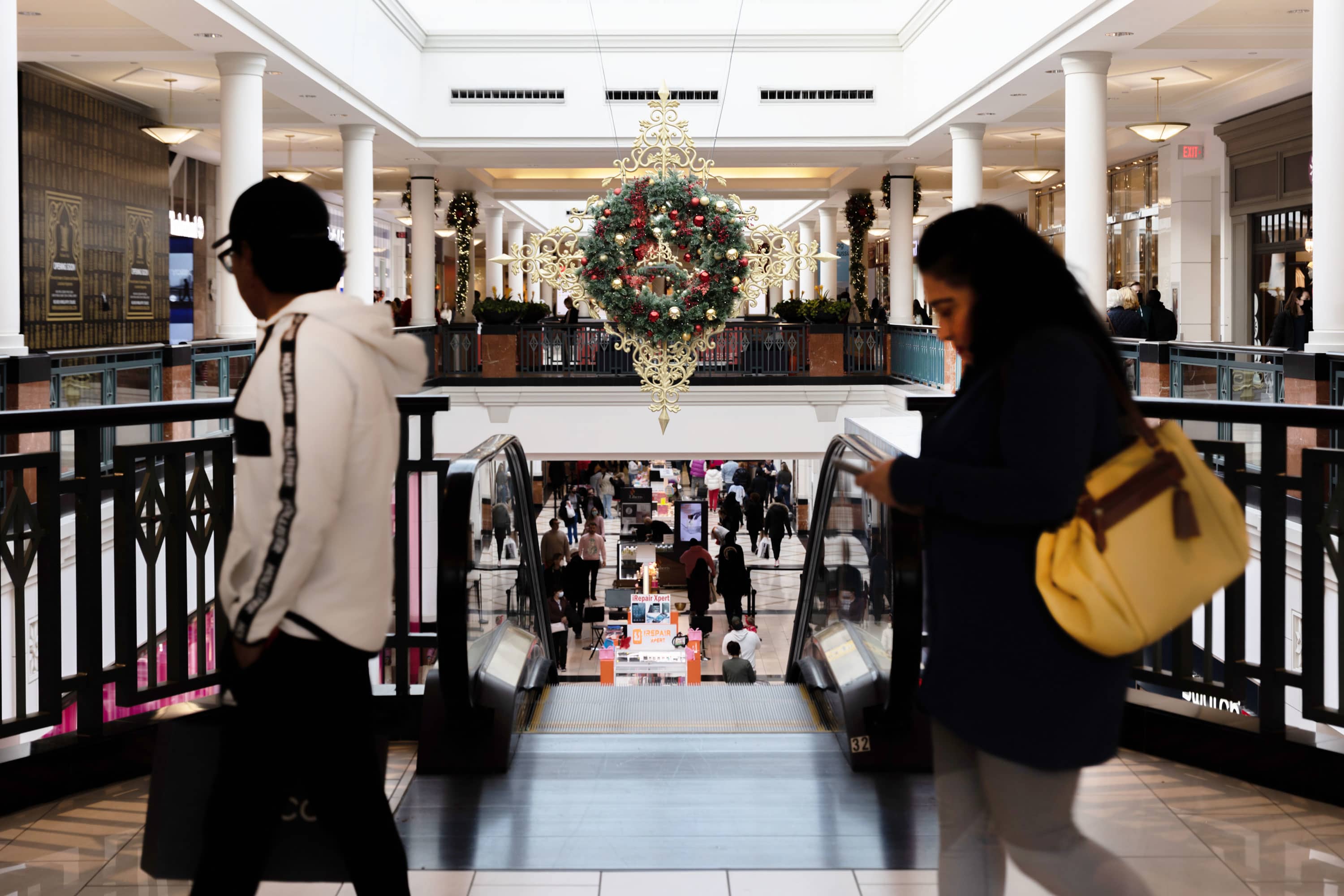
As shoppers kick off a wave of returns and exchanges or rush in to spend gift cards, retailers appear to have reason to celebrate: Holiday spending rose 8.5% compared with a year ago, according to Mastercard SpendingPulse.
The gain was slightly less than the 8.8% increase that Mastercard had predicted, but it was the biggest annual increase 17 years. Still, some are concerned that a strong holiday season could set up a more challenging January and February.
“Consumer demand remains very strong, but we’re cautiously optimistic because the traffic has decelerated a little bit in December,” said Oliver Chen, a retail analyst for Cowen, on CNBC’s “Squawk on the Street.”
Chen said he still has tempered expectations for the industry’s performance this holiday season and beyond. Inflation and the omicron variant weigh on consumers’ minds. Plus, he said, supply chain challenges may cut into profits, if shoppers’ appetites wane or goods arrive at the wrong time and force retailers to increase the number of markdowns.
Retailers and investors are just starting to get a read on the peak shopping season. The Mastercard data is one of the first looks at the season. The company tracks in-store and online retail sales from Nov. 1 through Dec. 24 across all forms of payment, excluding automotive sales.
By its measure, retail sales significantly exceeded pre-pandemic levels, with total sales increasing 10.7% this holiday compared with the same time in 2019, according to Mastercard. In-store sales grew 2.4% and online sales surged 61.4% versus the two-year ago period, it found.
Since the pandemic, online shopping has become a more meaningful part of shoppers’ holiday habits, too. E-commerce sales jumped 11% from 2020 to 2021, according to Mastercard. Online sales made up nearly 21% of total retail spending during the holiday season, roughly in line with the year-ago period and up from 14.6% in 2019.
Some retail categories especially shined. Apparel sales and jewelry sales rose 47.3% and 32%, respectively, versus the year-ago period. They were up 29% and 26.2% when compared with the holiday season in 2019. Electronics sales rose 16.2% compared with the year-ago period.
Chen said some retailers, including Walmart, Costco and Target, are better positioned because they cut across merchandise categories and have online options, such as curbside pickup and home delivery, as people look for convenient and safe ways to shop. Walmart and Target shares were both trading up less than 1% in trading Monday, while Costco shares gained more than 2%.
Luxury retailers, including jeweler Brilliant Earth and high-end home decor retailer RH, have benefited from less price sensitive consumers who are splurging on earrings, handbags, pricey furniture and more, he said. Shares of both Brilliant Earth and RH were slightly lower in trading Monday.
Chen added Macy’s and Kohl’s are appealing stocks because the shares have underperformed. On Monday, Macy’s stock was up more than 3%, while Kohl’s stock gained nearly 2%. After a tough year for department store stocks in 2020, Macy’s is up 131% year-to-date. Kohl’s has gained more than 25% since the start of 2021.




